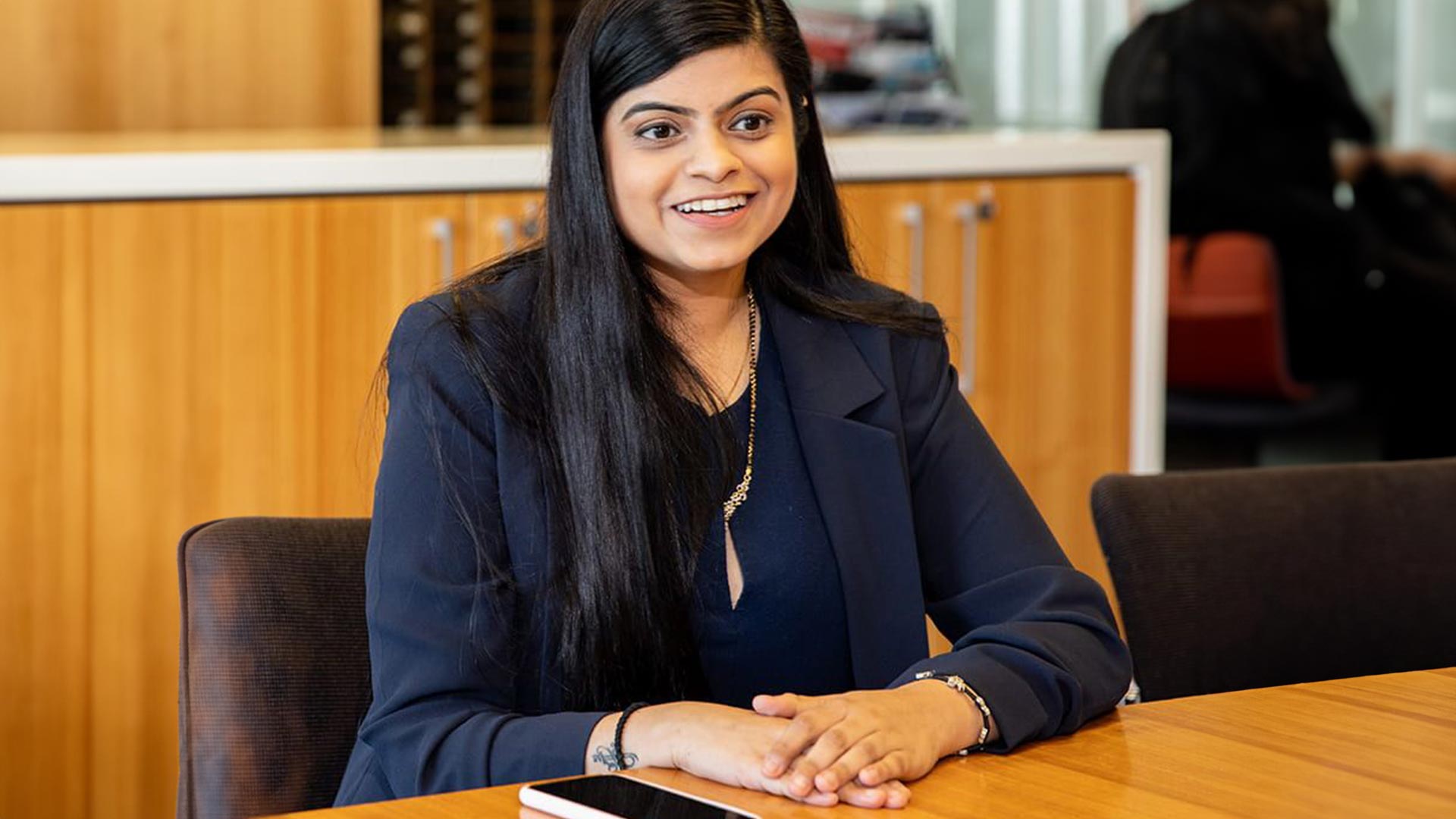Manvi Madan, a Data Analytics Specialist for the Ports of Auckland, New Zealand says WiDS has changed her perception about what’s possible for women in data science and has inspired her to become a leader in the space.
Tell us about your background.
I lived in New Delhi, India for the first 24 years of my life. I came to New Zealand to pursue my master’s degree in information technology from the University of Auckland. We loved New Zealand so much that my husband and I decided to make this country our home. Since then, we have been living in Auckland in a small, beautiful house with a garden full of roses.
How did you get interested in data science?
I got exposed to machine learning and fuzzy logic during my undergraduate degree through personal projects and research collaborations. I then got an opportunity to work on a research project in explainable artificial intelligence during my master’s degree at the University of Auckland. This research project led to a publication in the International Conference on Computational Science in 2019. It was then that I knew that this is what I want to do for life.
Since then, I have continued collaborating with researchers in the data science and machine learning space through my personal projects and hackathons (or datathons) while working in New Zealand’s data and analytics industry.
What are you currently working on?
I am on the data and analytics team at the Ports of Auckland where we provide end-to-end descriptive and predictive analytics solutions and hope to do prescriptive analytics in the future.
When I am not working in the industry, I focus on personal projects and research collaborations in the machine learning and AI space. Currently, I am collaborating with Dr. Alys Clark and Dr. Jo James of the Auckland Bioengineering Institute (University of Auckland) on a project that is close to my heart.
We are using machine learning and computer vision to computationally model pregnancy complications such as Intrauterine growth restriction (IUGR). The goal of the project is to get insights into why some babies are born smaller. Complications with a baby’s growth can make them more susceptible to be stillborn.
The motivation to contribute to this space came from a devastating pregnancy loss due to IUGR, something we see more often in women of Indian ethnicity. Today, because of advancements in computer vision and machine learning, we are a lot more equipped to find answers than we were before. This collaboration is my way of honoring the mothers that have experienced pregnancy loss.
How did you first discover WiDS?
I heard about the WiDS event and the community when my mentor Dr. Ratneesh Suri was invited to speak at the WiDS Auckland event. I later learned about the global community, and I immediately knew I wanted to be a part of it.
Have you been involved with WiDS since that first experience? If so, in what way?
Absolutely. I have attended the workshops and conferences. I stayed in touch with the women I met through the WIDS events. These inspiring women have championed me, guided me and been my most trusted advisors in this data science journey.
It has changed the way I perceive glass ceilings for women in data science. When I hear their stories and the impactful work that they are doing using data, it becomes easier to believe that I too can be a leader in this space. It reinforces the belief that someone who looks like me, comes from where I come from and has experienced what I have experienced can also be an inspiring and giving member of the data science community. It is inspirational to see how these women forge a path for themselves and their successors, thereby creating more room for women like me in data science.
What comes next for you? And what are your hopes for women in the data science in the future?
My favorite moment from the 2021 virtual WiDS conference was when Nobel Laureate Andrea Ghez said, “Telling our stories is such an important part of what we do.” I strongly agree with her.
I believe when we share the experiences we have had, the mistakes we made along the way, and the lessons we learned; these stories have the potential to become some else’s survival guide. I truly hope to be able to contribute to this community by uplifting and nurturing other women joining the data science field. I want to pave a path for them and make it easier for them to break into the industry. I would like to accomplish this by sharing my experiences authentically. Most importantly, I want to keep working on amazing cross-domain data science projects in industry and academia.


